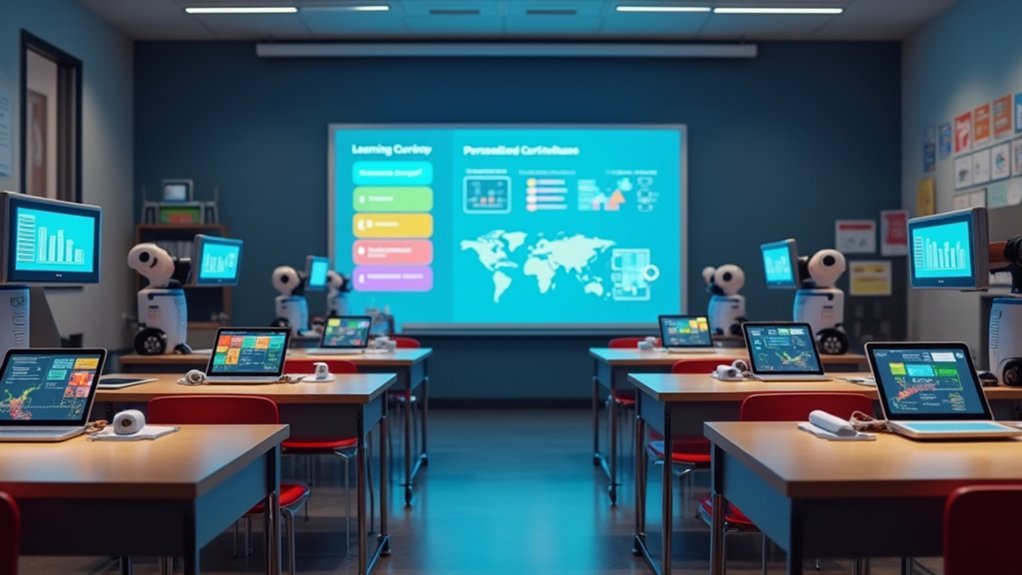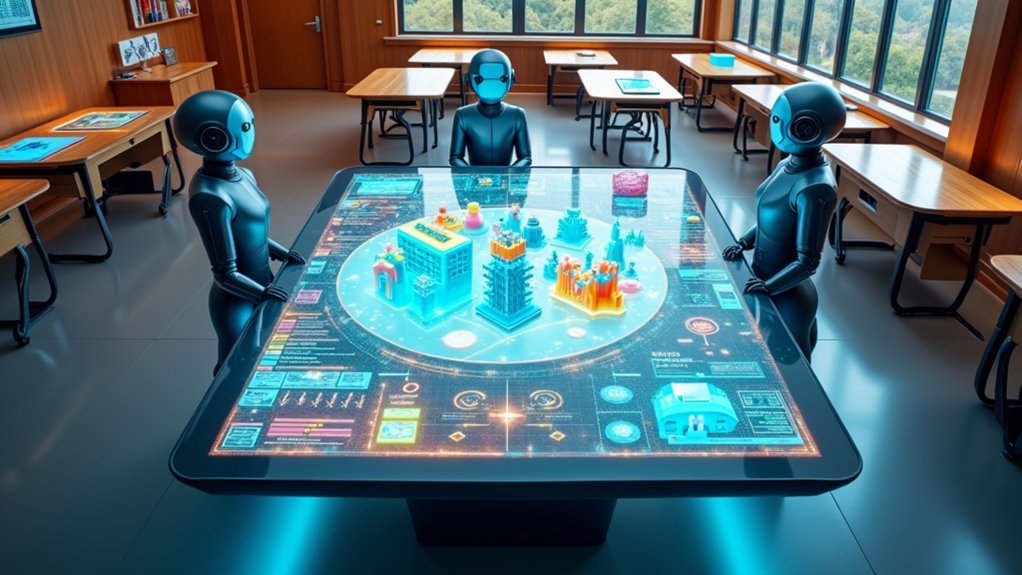AI is transforming education through personalized learning systems that adapt to individual student needs. Intelligent tutoring provides 24/7 support while automated grading saves teachers valuable time. AI tools enhance inclusivity with real-time translation and accessibility features for diverse learners. Administrative tasks are streamlined, allowing staff to focus on student interaction. These technologies aren't just changing classrooms—they're reshaping the entire educational experience for the digital generation.

As education systems worldwide evolve to meet modern challenges, artificial intelligence (AI) is transforming how students learn and how teachers teach. The integration of AI technologies in classrooms is creating smarter, more responsive educational experiences tailored to individual needs.
AI-powered personalized learning systems now adapt content based on each student's learning style and pace. These systems track progress, identify knowledge gaps, and suggest specific resources to help students master concepts. When a student struggles with fractions, for example, the AI might offer different explanations or visual aids until the concept clicks. Much like AI's approach to personalized medicine in healthcare, these educational tools analyze comprehensive student data to create truly customized learning experiences.
Modern AI systems transform education by adapting to individual learning needs, offering personalized guidance until complex concepts become clear.
Intelligent tutoring systems act like digital teaching assistants available around the clock. They answer questions, provide explanations, and adjust difficulty levels as students improve. This constant support means learning doesn't stop when class ends or when teachers are busy with other students.
The grading process has become more efficient with AI tools that evaluate assignments instantly. These systems can check multiple-choice questions, assess writing for grammar and content, and even detect potential plagiarism. Teachers now spend less time grading and more time on meaningful instruction.
In diverse classrooms, AI language tools bridge communication gaps through real-time translation and pronunciation feedback. Students learning English can receive immediate help with difficult words, while native speakers gain exposure to other languages and cultures.
For students with disabilities, AI creates more inclusive learning environments. Text-to-speech technology helps visually impaired learners, while real-time captioning assists those with hearing impairments. Students with learning disabilities benefit from adaptive content presentation. Data analysis through AI provides data-driven insights that transform how schools support students with specialized needs.
Behind the scenes, AI handles administrative tasks like scheduling, attendance tracking, and resource allocation. These systems predict enrollment trends and automate routine paperwork, allowing school staff to focus on supporting students. Advanced AI platforms like Fetchy optimize educational operations by streamlining budgeting and improving resource allocation efficiency.
As AI continues to develop, it's not replacing teachers but enhancing their abilities. The technology handles repetitive tasks while educators focus on what they do best—inspiring students and guiding their intellectual and social development.
Frequently Asked Questions
How Can Schools Afford AI Implementation With Limited Budgets?
Schools can afford AI implementation with limited budgets through several strategies.
They're using cost-effective solutions like smaller AI models and open-source tools. Many are seeking grants, partnerships with tech companies, and federal funding opportunities.
Schools are also implementing AI gradually, starting with small pilot programs.
AI itself helps save money through energy management, reducing administrative workloads, and preventing costly repairs through predictive maintenance.
Will AI Replace Human Teachers Completely?
AI won't completely replace human teachers. Experts agree that while AI can handle tasks like grading and personalized exercises, it can't replicate human qualities.
Teachers provide emotional support, inspiration, and real-world context that machines can't. The technology will likely transform teachers' roles, shifting their focus to mentoring and developing students' critical thinking skills rather than eliminating their positions altogether.
How Is Student Data Privacy Protected With Educational AI?
Educational AI systems protect student data privacy through strict policies and legal compliance. Schools must follow laws like FERPA and COPPA that limit data collection and usage.
Security measures include encryption and access controls, while regular audits guarantee compliance. Parents and students can opt out of data collection.
Companies must implement bias testing and human oversight to prevent discrimination and misuse of sensitive information.
Can AI Address Diverse Learning Needs Across Different Cultures?
AI technology is addressing diverse learning needs across cultures in several ways.
It's personalizing content to match cultural contexts and learning styles. AI tools offer real-time translation to overcome language barriers.
For students with disabilities, AI provides specialized support through adaptive technologies. The systems can detect cultural biases in educational materials and present diverse perspectives.
AI-powered tutors deliver culturally-relevant assistance 24/7, making education more inclusive worldwide.
What Skills Should Teachers Develop for Effective AI Integration?
Teachers need multiple skills for effective AI integration in classrooms. These include understanding basic AI concepts, evaluating AI tools critically, and designing personalized learning experiences.
They must also protect student privacy, recognize algorithm biases, and guarantee equitable access to AI resources.
Additionally, teachers should develop skills for AI-assisted collaboration and stay current with emerging educational technologies through professional development programs.









